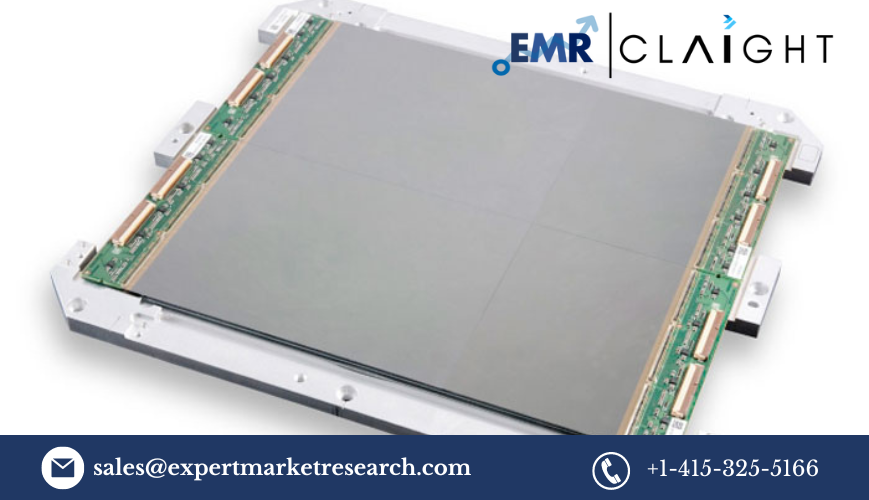Global CAR T-Cell Therapy Market Outlook
The global CAR T-cell therapy market size was valued at USD 2.5 billion in 2023, driven by the rising prevalence of cancer across the globe. The market is expected to grow at a CAGR of 15.2% during the forecast period of 2024-2032, with the values likely to rise from USD 2.9 billion in 2024 to USD 9.0 billion by 2032.
CAR T-Cell Therapy: Introduction
CAR T-cell therapy, a groundbreaking advancement in immunotherapy, harnesses the body’s own immune system to combat cancer. This innovative treatment involves genetically modifying a patient’s T-cells to express chimeric antigen receptors (CARs) that specifically target and destroy cancer cells. After modification, the CAR T-cells are expanded in the laboratory and infused back into the patient. This therapy has shown remarkable success, particularly in treating certain types of blood cancers such as leukemia and lymphoma, offering new hope for patients who have exhausted conventional treatment options. CAR T-cell therapy represents a significant step forward in personalized cancer treatment, highlighting the potential of genetic engineering in oncology.
Get a Free Sample Report with Table of Contents –
Key Trends in the Global CAR T-Cell Therapy Market
The CAR T-cell therapy market is experiencing dynamic growth, driven by several key trends:
• Expansion of Indications: Originally approved for certain types of blood cancers like acute lymphoblastic leukemia (ALL) and diffuse large B-cell lymphoma (DLBCL), CAR T-cell therapy is now being explored for a broader range of cancers, including solid tumors. Clinical trials are investigating its efficacy in multiple myeloma, glioblastoma, and pancreatic cancer, among others.
• Technological Advancements: Advancements in gene editing technologies, such as CRISPR, are enhancing the precision and efficiency of CAR T-cell production. These innovations are reducing manufacturing costs and improving the safety and efficacy of treatments.
• Next-Generation CAR T-Cells: Research is focused on developing next-generation CAR T-cells with enhanced functionalities. This includes the creation of “armored” CAR T-cells that secrete cytokines to improve their anti-tumor activity and dual-targeting CAR T-cells that can recognize multiple cancer antigens, reducing the likelihood of tumor escape.
• Improved Manufacturing Processes: Efforts to streamline and scale up manufacturing processes are critical to making CAR T-cell therapies more accessible. Automated and closed-system production methods are being developed to ensure consistent quality and reduce production time.
• Collaboration and Partnerships: The market is witnessing increased collaboration between pharmaceutical companies, academic institutions, and biotech firms. These partnerships are vital for advancing research, sharing resources, and accelerating the development and commercialization of new therapies.
• Regulatory Support and Approvals: Regulatory agencies, including the FDA and EMA, are providing accelerated approval pathways for CAR T-cell therapies. This regulatory support is crucial for bringing new treatments to market swiftly, especially for patients with limited options.
• Integration with Other Therapies: Combining CAR T-cell therapy with other treatments, such as checkpoint inhibitors and traditional chemotherapy, is being explored to enhance efficacy and overcome resistance. These combination therapies hold the potential to improve patient outcomes significantly.
• Focus on Safety and Toxicity Management: Addressing the safety concerns associated with CAR T-cell therapy, particularly cytokine release syndrome (CRS) and neurotoxicity, is a major focus. Improved management protocols and the development of safer CAR constructs are critical to ensuring broader adoption.
These trends collectively underscore the dynamic and rapidly evolving nature of the CAR T-cell therapy market, highlighting its potential to transform cancer treatment.
Read Full Report with Table of Contents –
Global CAR T-Cell Therapy Market Segmentation
Market Breakup by Drug Type
• Axicabtagene Ciloleucel
• Tisagenlecleucel
• Brexucabtagene Autoleucel
• Lisocabtagene Maraleuce
• Idecabtagene Vicleucel
• Ciltacabtegene Autoleucel
• Others
Market Breakup by Antigen
• CD19
• BCMA
• HER2
• GD2
• CD22
• CD30
• CD33
• HER1
• CLDN18
Market Breakup by Application
• Acute Lymphocytic Leukemia
• Chronic Lymphocytic Leukemia
• Diffuse Large B-Cell Lymphoma (DLBCL)
• Follicular Lymphoma
• Mantle Cell Lymphoma
• Multiple Myeloma
• Glioblastoma
• Sarcoma
• Neuroblastoma
• Acute Myeloid Leukemia
• Breast Cancer
• Pancreatic Cancer
• Hepatocellular Carcinoma
• Colorectal Cancer
• Others
Market Breakup by Region
• North America
• Europe
• Asia Pacific
• Latin America
• Middle East and Africa
Global CAR T-Cell Therapy Market Overview
The global luxury goods market is witnessing robust growth, driven by increasing disposable incomes, changing consumer preferences, and the rise of digital and e-commerce platforms. North America holds a significant share of the market, with the United States leading in luxury goods consumption. The region’s affluent consumer base, coupled with a strong presence of major luxury brands, drives market growth. High spending on premium fashion, accessories, and automobiles characterizes North America’s luxury goods market. Additionally, the trend towards experiential luxury, such as high-end travel and bespoke services, is gaining traction among affluent consumers.
Europe is another major player in the luxury goods market, home to many of the world’s most prestigious luxury brands. Countries like France, Italy, and the United Kingdom are at the forefront, driven by a rich heritage of craftsmanship and innovation. European consumers are known for their preference for high-quality, timeless pieces, which sustains demand for luxury fashion, watches, and jewelry. The region also benefits from a steady influx of tourists, particularly from Asia and the Middle East, who contribute significantly to luxury goods sales. Furthermore, the European market is seeing a growing interest in sustainable and ethically produced luxury items, aligning with broader environmental and social trends.
The Asia Pacific region is experiencing the fastest growth in the luxury goods market, with China being the dominant force. The rising middle class, increasing urbanization, and a strong appetite for premium products fuel the market. Chinese consumers, particularly millennials and Gen Z, are driving demand for luxury fashion, beauty products, and high-end electronics. Japan and South Korea also represent significant markets, with a strong preference for luxury cosmetics, skincare, and technology. The region’s rapid digitalization and the widespread use of social media and e-commerce platforms facilitate luxury brands’ reach to a broader audience, further boosting sales.
Latin America presents a mixed picture, with countries like Brazil and Mexico leading the luxury goods market. Economic volatility and political instability in some parts of the region can pose challenges. However, there is a growing affluent class with a taste for luxury fashion, automobiles, and personal care products. The market is also witnessing an increasing influence of digital channels, with consumers becoming more inclined to shop for luxury goods online. Local brands are also emerging, blending traditional craftsmanship with modern luxury trends, appealing to both domestic and international consumers.
The Middle East and Africa region holds significant potential for the luxury goods market, driven by countries like the United Arab Emirates, Saudi Arabia, and South Africa. The Middle East, in particular, is known for its high spending on luxury fashion, jewelry, and automobiles. Wealthy consumers in the region have a strong preference for exclusive, high-end products, and the market is characterized by a strong presence of flagship stores and luxury malls. Africa, although still a nascent market, is witnessing growth in luxury consumption, particularly among the emerging middle class in countries like Nigeria and South Africa. The region’s diverse culture and growing interest in premium and bespoke products present opportunities for luxury brands.
Global CAR T-Cell Therapy Market: Competitor Landscape
The key features of the market report include patent analysis, grants analysis, clinical trials analysis, funding and investment analysis, partnerships, and collaborations analysis by the leading key players. The major companies in the market are as follows:
• Autolus Therapeutics: Established in 2014, Autolus Therapeutics is headquartered in London, United Kingdom. The company specializes in the development of next-generation, programmed T cell therapies for the treatment of cancer. Autolus focuses on designing highly targeted CAR T-cell therapies that address various hematological and solid tumors. Their pipeline includes candidates for relapsed or refractory B-cell malignancies, multiple myeloma, and T-cell lymphoma. By leveraging their proprietary technology platforms, Autolus aims to enhance the efficacy, safety, and persistence of CAR T-cell therapies, offering new hope for patients with hard-to-treat cancers.
• CARsgen Therapeutics Co.Ltd.: Founded in 2014, it is headquartered in Shanghai, China. The company is dedicated to developing innovative CAR T-cell therapies for the treatment of cancer. CARsgen’s main portfolio includes a range of CAR T-cell candidates targeting various cancer types, including hepatocellular carcinoma, glioblastoma, and hematological malignancies. The company’s proprietary CAR T-cell platforms aim to overcome the limitations of traditional therapies, offering enhanced safety and efficacy. CARsgen’s commitment to advancing immunotherapy has positioned it as a leader in the rapidly evolving field of cancer treatment.
• Juno Therapeutics, Inc.: Juno Therapeutics, Inc., established in 2013, is headquartered in Seattle, Washington, USA. The company focuses on developing innovative CAR T-cell therapies and other immunotherapies to treat cancer. Juno’s main portfolio includes CAR T-cell products targeting hematologic cancers such as non-Hodgkin lymphoma, chronic lymphocytic leukemia, and acute lymphoblastic leukemia. The company leverages its expertise in cell-based therapies to develop highly effective treatments that harness the body’s immune system. In 2018, Juno Therapeutics was acquired by Celgene Corporation, further strengthening its capabilities in the immuno-oncology space.
• Sorrento Therapeutics, Inc.: Sorrento Therapeutics, Inc., founded in 2009, is headquartered in San Diego, California, USA. The company is focused on developing a wide range of therapeutic products, including CAR T-cell therapies, for the treatment of cancer, autoimmune diseases, and infectious diseases. Sorrento’s main portfolio includes CAR T-cell candidates for hematological malignancies and solid tumors, as well as antibody-drug conjugates and immuno-oncology platforms. The company’s innovative approach combines various modalities to enhance treatment efficacy and improve patient outcomes, positioning Sorrento as a key player in the biotech industry.
• Bluebird bio, Inc.: Bluebird bio, Inc., established in 1992, is headquartered in Cambridge, Massachusetts, USA. The company is a pioneer in gene therapy and CAR T-cell therapy, focusing on developing transformative treatments for severe genetic diseases and cancer. Bluebird bio’s main portfolio includes CAR T-cell products for multiple myeloma and gene therapies for conditions such as beta-thalassemia and sickle cell disease. By harnessing the power of gene editing and cellular therapy, Bluebird bio aims to deliver long-lasting and potentially curative treatments, offering new hope for patients with limited therapeutic options.
Other key players in the market include CELGENE CORPORATION, Eureka Therapeutics Inc., Avacta Life Sciences Ltd., Calyxt Inc., Celyad Oncology SA, Fortress Biotech, Inc, IMMUNE THERAPEUTICS, INC, Alaunos Therapeutics, Inc., Gilead Sciences, Inc., Novartis AG.
About Us:
Acquire unparalleled access to critical industry insights with our comprehensive market research reports, meticulously prepared by a team of seasoned experts. These reports are designed to equip decision-makers with an in-depth understanding of prevailing market trends, competitive landscapes, and growth opportunities.
Our high-quality, data-driven analyses provide the essential framework for organisations seeking to make informed and strategic decisions in an increasingly complex and rapidly evolving business environment. By investing in our market research reports, you can ensure your organisation remains agile, proactive, and poised for success in today’s competitive market.
Don’t miss the opportunity to elevate your business intelligence and fortify your strategic planning. Secure your organisation’s future success by acquiring one of our Expert Market Research reports today.
Media Contact:
Company Name: Claight Corporation
Contact Person: Jhon Roy, Business Consultant
Email: sales@expertmarketresearch.com
Toll Free Number: US +1-415-325-5166 | UK +44-702-402-5790
Address: 30 North Gould Street, Sheridan, WY 82801, USA
Website: www.expertmarketresearch.com



